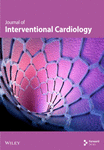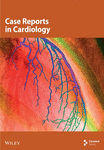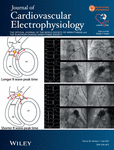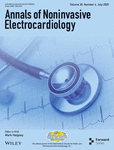Journal list menu
Export Citations
Download PDFs
Editorial
Open Access
oa
Cardiovascular Disease-Related Lifestyle Factors and Longevity
- First Published: 29 December 2011
Research Article
Open Access
oa
Cardiovascular Disease-Related Lifestyle Factors among People with Type 2 Diabetes in Pakistan: A Multicentre Study for the Prevalence, Clustering, and Associated Sociodemographic Determinants
- First Published: 09 August 2011
Research Article
Open Access
oa
Health-Adjusted Life Expectancy among Canadian Adults with and without Hypertension
- First Published: 18 June 2011
Research Article
Open Access
oa
Possible Association of High Urinary Magnesium and Taurine to Creatinine Ratios with Metabolic Syndrome Risk Reduction in Australian Aboriginals
- First Published: 09 June 2011
Research Article
Open Access
oa
Mediterranean Diet Mediates the Adverse Effect of Depressive Symptomatology on Short-Term Outcome in Elderly Survivors from an Acute Coronary Event
- First Published: 09 May 2011
Review Article
Open Access
oa
Molecular Mechanisms in Exercise-Induced Cardioprotection
- First Published: 06 March 2011
Research Article
Open Access
oa
Sociodemographic and Lifestyle Statistics of Oldest Old People (>80 Years) Living in Ikaria Island: The Ikaria Study
- First Published: 24 February 2011
Review Article
Open Access
oa
Cardiovascular Prevention of Cognitive Decline
- First Published: 23 January 2011
Review Article
Open Access
oa
Physical Inactivity and Mortality Risk
- First Published: 20 January 2011
Review Article
Open Access
oa
Does Smoking Act as a Friend or Enemy of Blood Pressure? Let Release Pandora′s Box
- First Published: 19 January 2011
Research Article
Open Access
oa
Lifestyle Practices and Cardiovascular Disease Mortality in the Elderly: The Leisure World Cohort Study
- First Published: 09 January 2011
Review Article
Open Access
oa
Efficacy of Dietary Behavior Modification for Preserving Cardiovascular Health and Longevity
- First Published: 28 December 2010
Clinical Study
Open Access
oa
Association between Depression and C-Reactive Protein
- First Published: 22 December 2010
Research Article
Open Access
oa
Long-Term Effect of Mediterranean-Style Diet and Calorie Restriction on Biomarkers of Longevity and Oxidative Stress in Overweight Men
- First Published: 20 December 2010
Review Article
Open Access
oa
Systematic Review of the Effect of Diet and Exercise Lifestyle Interventions in the Secondary Prevention of Coronary Heart Disease
- First Published: 19 December 2010
Research Article
Open Access
oa
Androidal Fat Dominates in Predicting Cardiometabolic Risk in Postmenopausal Women
- First Published: 19 December 2010
Research Article
Open Access
oa
Fish Consumption Moderates Depressive Symptomatology in Elderly Men and Women from the IKARIA Study
- First Published: 15 December 2010
Review Article
Open Access
oa
Special Needs to Prescribe Exercise Intensity for Scientific Studies
- First Published: 15 December 2010
Research Article
Open Access
oa
Betel Nut Chewing and Subclinical Ischemic Heart Disease in Diabetic Patients
- First Published: 04 November 2010
Review Article
Open Access
oa
Lessons from Studies in Middle-Aged and Older Adults Living in Mediterranean Islands: The Role of Dietary Habits and Nutrition Services
- First Published: 01 November 2010








